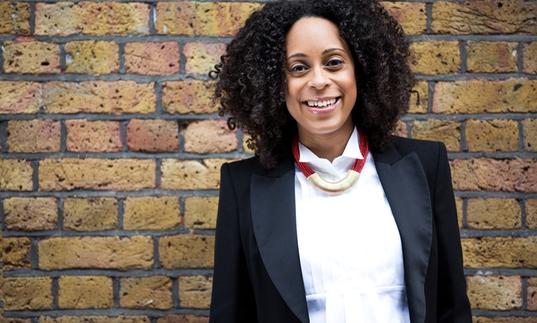If you’re considering going freelance or setting up a business in your creative field, you’re bound to have a lot of questions. How should you go about pricing your work? Is it a good idea to work for free? What should you do if a client refuses to pay?
Face up to finance
Finance may not sound like the most thrilling of subjects, but the speakers stressed that if you don’t get your head around the basics, you could end up jeopardizing your chances of making a living as a creative. ‘Finance can make or break you,’ Tim believes. ‘If you don’t get to grips with it, you might not be able to continue with creative work and you could be forced into mainstream work instead.’
Working for free
At the start of their careers, Tim & Barry assisted photographers to gain experience. Unpaid or low paid work may feel like a drag, but Tim stresses ‘it’s really important to learn as much about the industry as possible.’ If you need extra money, a part-time job might be a good idea. Tim worked as a DJ while he learnt the tricks of the photography trade.
It’s important to stay positive and focused when you’re starting out. ‘Even bad experiences can influence you as they show you what not to do,’ says Barry. ‘You’ve got to be prepared to keep fighting. You need to come back from your day job and then start working on your own stuff. If you come home and watch TV, you’ll get nowhere.’
Take calculated risks
Taking calculated risks in business can pay off. When Tim & Barry met Skepta in 2002, they had a feeling he was going to be big. After all, they shot Dizzee Rascal before he was even signed to a record label. The duo offered to shoot Skepta’s music video for ‘That’s Not Me’ but at the time, the rapper could only afford to pay £80. Tim & Barry shot the video anyway, on the condition that Skepta would perform at one their audio visual Just Jam events.
In 2014, Tim & Barry were sitting in a car park when they found out they’d won a Mobo for Best Video. Their Twitter feed exploded, they received tons of press coverage and ended up getting Skepta to perform at a sell-out Just Jam event at the Barbican Centre.
‘If you’re going to take a risk, understand why you’re taking it and what you’re getting out of it, if you’re not being paid a lot, make sure you negotiate other benefits to make the job worth your while.’
Approaching clients
If you’re new to the industry, it’s normal to get nervous when phoning up potential clients. ‘If someone doesn’t get back to you, nine times out of ten, it’s because they’re busy. Don’t take rejection to heart,’ Tim advised. ‘Your fear of what people think of you will go or, at least, lessen over time.’
Tim & Barry also emphasized the importance of being concise, while expressing not just what you hope to gain, but the value you can bring to others. Take a professional approach – long, rambling emails are just as much of a no-no as misspelt tweets.
Pricing your work
Pricing your work can be tricky. If you aim too high, you risk pricing yourself out of a job. Go too low and your client might bleed your dry. Remi pointed out that clients will often try to negotiate so it’s important not to immediately offer your lowest rate. ‘Add on ten or twenty percent to your rate to create room for negotiation,’ Remi suggested. ‘The client will think they’ve got a good deal once they’ve negotiated you down and you won’t be left out of pocket.’
Preparing a budget
When you’re preparing a budget for a project, it’s important to factor in all the costs you’re likely to incur, from equipment and travel expenses to your time.
Here are our panel’s suggestions:
- The bigger the project, the more expenses you should include. Don’t list dozens of costs for a £300 budget and don’t only list a couple if your budget is £3,000.
- Create two copies of the budget - a detailed one for yourself and a simplified one for your client. Your budget might list LED lights, lighting meters and batteries but the budget you give to your client should summarize these as ‘Lighting expenses’. You can always supply the detailed version if your client requires more information.
- If you’re renting equipment, add on 20% to the hire price to cover your time. After all, you have to research products, open a customer account and collect items etc.
- Include contingency costs to cover expenses that you may have overlooked. Contingency costs are generally ten percent of your overall budget.
- Even if you already own equipment, such as a computer or camera, include a sum in your budget towards it.
- If you drive, don’t just charge for your petrol. You also have to pay road tax, insurance and maintenance costs to run your car, so factor these into your budget using online calculators such as This is Money https://www.thisismoney.co.uk/money/cars/article-1633412/Calculator-True-cost-running-car.html
- When pricing your day rate, don’t forget to take into consideration the time you spend outside the project on tasks such as marketing yourself, phone calls and meetings.
- Make sure your numbers add up. Using Microsoft Excel is even more fool proof than a calculator
Resolving disputes
When negotiating jobs with clients, make sure you keep a written record of every conversation to cover your back if a dispute arises. If you discuss the terms of a project on the phone, email the client afterwards to summarize the conversation.
The UK government’s late payment legislation states that British companies have to pay interest and debt recovery costs on unpaid invoices after 30 days. ‘If a client refuses to pay, it might be worth reminding them of the law,’ Remi suggested. ‘If that fails, having a letter drafted by a lawyer costs between £20 and £50 and can be very effective. If the client still refuses to pay, you can take them to the small claims court.’ https://www.gov.uk/make-court-claim-for-money
Pay your taxes
You may not be making a lot when you start out, but it’s important to file a tax return from your very first year. ‘The tax man will come down on you if you suddenly go from nothing to £20,000,’ Tim pointed out.
You can reduce your tax bill by including tax deductible expenses. Anything that goes towards your business is tax deductible so if you work in music, a ticket to a gig counts as research for your career. If you’re unsure whether an expense is tax deductible, check out the list by HMRC or give them a ring on 0300 200 3310.



